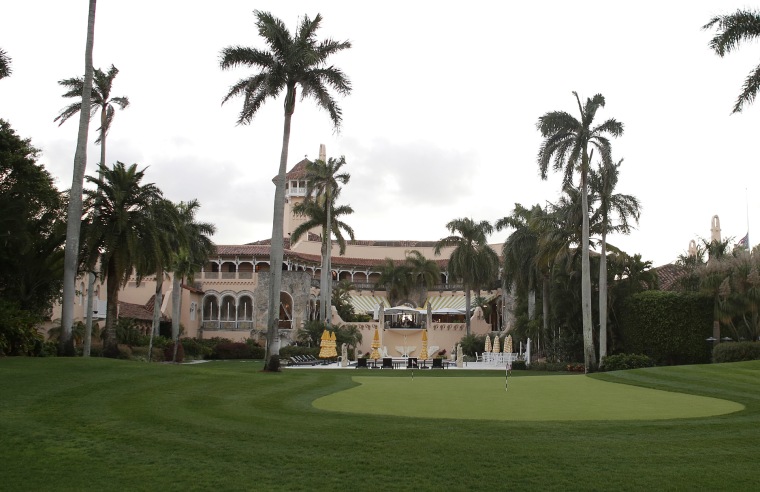There is growing evidence that Donald Trump’s political mud-slinging is tarnishing his gold-plated name, and industry observers say the Republican presidential nominee risks doing permanent damage to his brand.
“There are certainly groups and event planners shying away [from Trump-related venues] just because they don’t want to offend anybody,” said David Loeb, managing director and senior real estate research analyst at Robert W. Baird & Co.
Already, the Susan G. Komen Foundation is considering relocating an annual fundraiser held at Trump’s Mar-a-Lago Club in Palm Beach, and the PGA announced this summer that it was moving the WGC-Cadillac Championship from the Trump National Doral in Florida to Mexico City next year.
“It became apparent that we would not be able to secure sponsorship at levels that would sustain the event and help it grow at Trump National Doral,” PGA Tour commissioner Tim Finchem said in a statement.
Misaligned values
“The majority of the meeting planning community is female, and when you have a candidate who’s been very polarizing… it just kind of makes sense that might impact their decision-making,” said Kevin Iwamoto, a senior consultant at GoldSpring Consulting. “Planners and buyers are going to vote with their dollars.”
Event industry professionals say they have to tiptoe around the elephant in the room when helping clients choose where to hold functions.
“It’s almost as if you have to go into the conversation almost apologetic about politics,” said Jaclyn Bernstein president and partner at Empire Force Events/Access New York Metro. “You almost have to pre-empt suggesting it.”
Bernstein said some clients don’t care whose name is on the building as long as the venue fits their needs. “I think earlier in the race it didn’t matter as much,” she said.
Lately, though, more of her clients are ruling out Trump properties. “More so especially these past couple of weeks based on the news,” she said. They’re just thinking it just might not be appropriate… It’s easier just to not go there than to have people question why are they there.”
Joan Eisenstodt, a meetings and hospitality consultant in Washington, D.C. who works with numerous trade associations, said booking a Trump property could run afoul of some group’s diversity and inclusion policies.
“The name is associated with values that don’t align with who they are,” she said. “They can’t risk it.”
Separating the man from the marque
A spokesperson for the Trump Organization told NBC News, “The Trump Brand remains incredibly strong and we are seeing tremendous success across business units. We continue to outperform our competitors and are very enthusiastic about the future and our continued growth.”
Rick Garlick, global practice lead for travel and hospitality group at J.D. Power and Associates, said that although the Trump hotel brand is too small to be included in its luxury hotel ranking, the customer feedback they did gather was very positive.
“They’ve had a good focus on customer service. Our belief is the Trump hotels do focus on quality and luxury, and they cater well to the audience who they appeal to,” he said.
But now, Trump risks sacrificing this on the altar of his political ambitions, Garlick said. “In terms of his policies and his brand, I think you cannot separate the personal from the professional brand,” he said. “It would be very, very surprising if it did not hurt the brand.”
The end of an empire?
This negative perception goes beyond hotels, and suggests that Trump could be squandering the cachet he spent his entire career building. Real estate brokerage Redfin analyzed sales of Trump condominiums compared to non-Trump properties across the U.S. (excluding New York City and Stamford, Conn.)
“We found that before the actual run-up to the election, condo units that had the Trump branding on them had a premium of about 7 percent,” said chief economist Nela Richardson. “The Trump name actually had some economic value,” she said. “After the election really got into high speed… that premium disappeared.”
Some of this could just be market forces at work, but other research points to a political cause.
Trump’s recently shuttered Taj Mahal casino is unfavorably viewed by consumers, according to data from YouGov BrandIndex, using a metric that assesses positive and negative word of mouth, advertising and news stories, with 0 being neutral.
At the end of 2015, the Trump “buzz score” was -2, slightly lower than the casino sector average score of 2, but not by much. This week, the casino sector’s buzz score was 1. Trump’s was -14.
If and when the Trump name will regain its shine depends on how Trump reacts after the election, if he loses. “It can be very hard for the average consumer to remember the people who lost a presidential race,” Marzilli said, but this time is likely to be different.
“It could be that Trump just kind of fades from view. I think, given what Trump has participated in over the past five to 10 years, that’s not a likely scenario.”
If Trump sticks to his bellicose stance and refuses to concede to Hillary Clinton, it will undoubtedly keep him in the public eye, but at a considerable potential cost.
“I think there’s a risk this continues and there could be permanent damage to the brand,” Loeb said, especially for long-term plans or future developments. If customers stay away, eventually investors will grow wary, as well.
